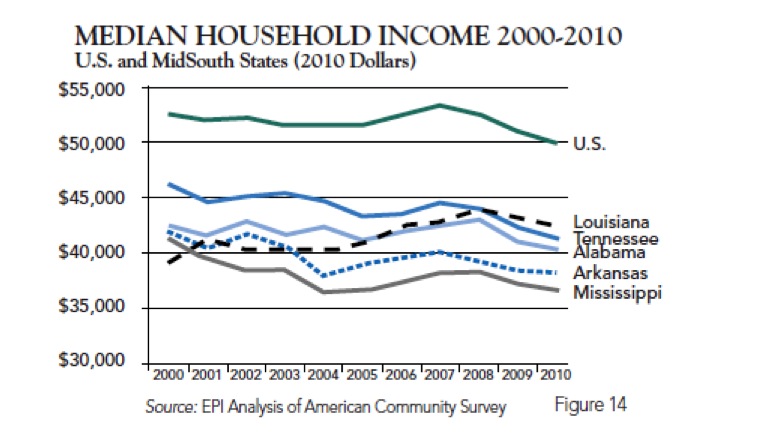Across the Mid South, households earned lower median incomes than did U.S. families overall, but changes from the beginning to the end of the decade were not the same for states around the region. Mississippi households have consistently had less income than households in neighboring states.
After falling from 2000 to 2004, Mississippi’s household income fluctuated around $37,000 for the rest of the decade. Mississippi’s household income of $36,851 in 2010 was $4,500 less than in 2000. Louisiana was the only state in the region to experience an increase in median household income over the decade.
In Mississippi, median household income varies considerably by race. While families of all demographics are having a hard time making ends meet in the current financial climate, a larger portion of African- American households struggle to cover all their basic needs and build wealth for long-term economic security. Income for white households ($46,799) was close to twice the median income for African- American households ($24,838) in the late 2000s.
Hear Ed Sivak, MEPC’s director, speak about disparities in income and employment by race on MPB’s Morning Edition radio interview.
RECOMMENDATION
ENSURE EMPLOYMENT-BASED BENEFITS KEEP FAMILIES HEALTHY AND SECURE
Adults in low-wage jobs that are part-time, seasonal or lack employer-sponsored benefits like health insurance or sick leave will often struggle to meet the needs of their families while working. For many families living below economic security a wide range of work supports are necessary to elevate families toward greater security. Programs and funding dedicated to providing affordable housing, health care, and child care are critical to move people along the path towards basic econnomic security and beyond.
Author: Sarah Welker, Policy Analyst





